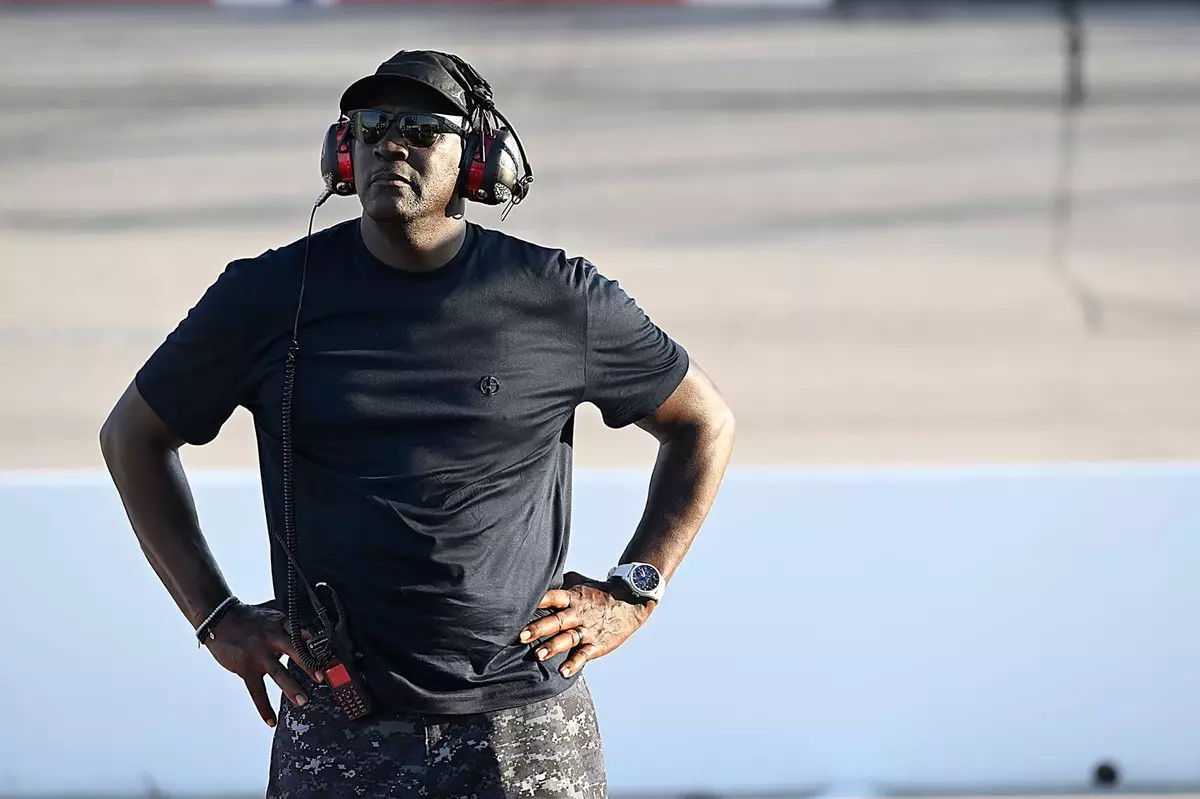In an unprecedented move, 23XI Racing, co-owned by the basketball legend Michael Jordan, and Front Row Motorsports (FRM), owned by Bob Jenkins, have united to file a lawsuit against NASCAR. They accuse the organization of employing “anti-competitive and monopolistic” practices that compromise the integrity of the sport. This suit serves as a bold statement about the need for reform within the NASCAR framework, particularly concerning its charter agreements, and signals a willingness of these teams to take drastic measures to ensure a level playing field for all stakeholders involved in stock car racing.
The roots of this legal dispute trace back to the newly proposed charter agreement, which is set to govern NASCAR operations from 2025 to 2031. While 13 of the existing 15 teams quickly signed onto the new deal, 23XI Racing and FRM have firmly rejected it, citing various grievances regarding its terms. Their joint statement reveals not only their dissatisfaction but also emphasizes a shared mission to advocate for motivations that transcend mere financial gains; they seek to foster a sporting environment that elevates competition, benefits teams and drivers, and most importantly, enriches the experience for fans.
The current climate surrounding NASCAR has been characterized by discontent among some team owners. They believe the controlling influence of NASCAR has shifted away from fostering a competitive atmosphere to one that favors select interests. The lawsuit alleges that NASCAR’s leadership, particularly the France family—who have regulated the series since its inception in 1948—engages in practices that undermine open competition and transparency.
The joint lawsuit outlines several key concerns that they claim exemplify NASCAR’s anti-competitive behavior. These accusations include the monopolization of premier racetracks, which are exclusive to NASCAR events, restrictive exclusivity agreements imposed on sanctioning racetracks, and the acquisition of the Automobile Racing Club of America (ARCA)—the only noteworthy competitor in the stock car arena. Furthermore, both teams contend that NASCAR constrains them by preventing participation in alternative racing events and dictating parts procurement from designated suppliers.
Such practices raise serious questions about the sustainability of competition in NASCAR and whether it allows for the growth of diverse teams, including those new to the circuit. The desire for a competitive sport that benefits a wider array of stakeholders, including fans, is at the forefront of this legal battle.
The sentiments expressed by Jordan and Jenkins encapsulate the frustration that many have quietly felt within the NASCAR community. Jordan, a fierce competitor in every venture he undertakes, voiced a commitment to fostering a race environment where all parties have equal opportunities to succeed. He highlights a need for systemic change, reflecting a value many stakeholders feel has been long overdue.
Similarly, Jenkins spoke of a shared history in racing and outlined a critical turning point for the sport. He emphasizes the need for a balanced approach where investments translate into long-term value for teams, rather than an entrenched system that benefits a few at the expense of the majority.
Moreover, 23XI co-owner, Polk, added that their ultimate goal is to foster a collaborative partnership with the sanctioning body, rather than a one-sided dictatorship that stifles innovation and competitiveness. This call for shared governance stresses a vision for a more inclusive approach to running NASCAR.
In the wake of their grievances, 23XI Racing and Front Row Motorsports plan to seek a preliminary injunction to allow their teams to compete under the 2025 charter agreement, even as they pursue their antitrust litigation. This legal strategy reflects a proactive grandstand against the limitations imposed by NASCAR, as well as a determination to push for regulatory scrutiny of these perceived exclusionary practices.
Should the courts favor the plaintiffs, the implications could be monumental not only for the two teams involved but also for NASCAR as a whole. A successful outcome could usher in a new era characterized by increased competition and transparency, reshaping the relationship between team owners and NASCAR.
The legal action initiated by 23XI Racing and Front Row Motorsports against NASCAR is a pivotal moment in the sport’s history. It signifies a coalition of voices advocating for significant changes that ensure fairness and competition. As the lawsuit progresses, the outcome could determine the future landscape of NASCAR and set a precedent for how the sport is governed, potentially revitalizing interest among teams and fans alike. The racing world will be watching intently as this critical battle unfolds, where aspirations for equity could lead to transformational changes in how one of America’s oldest motorsports is managed.


Leave a Reply